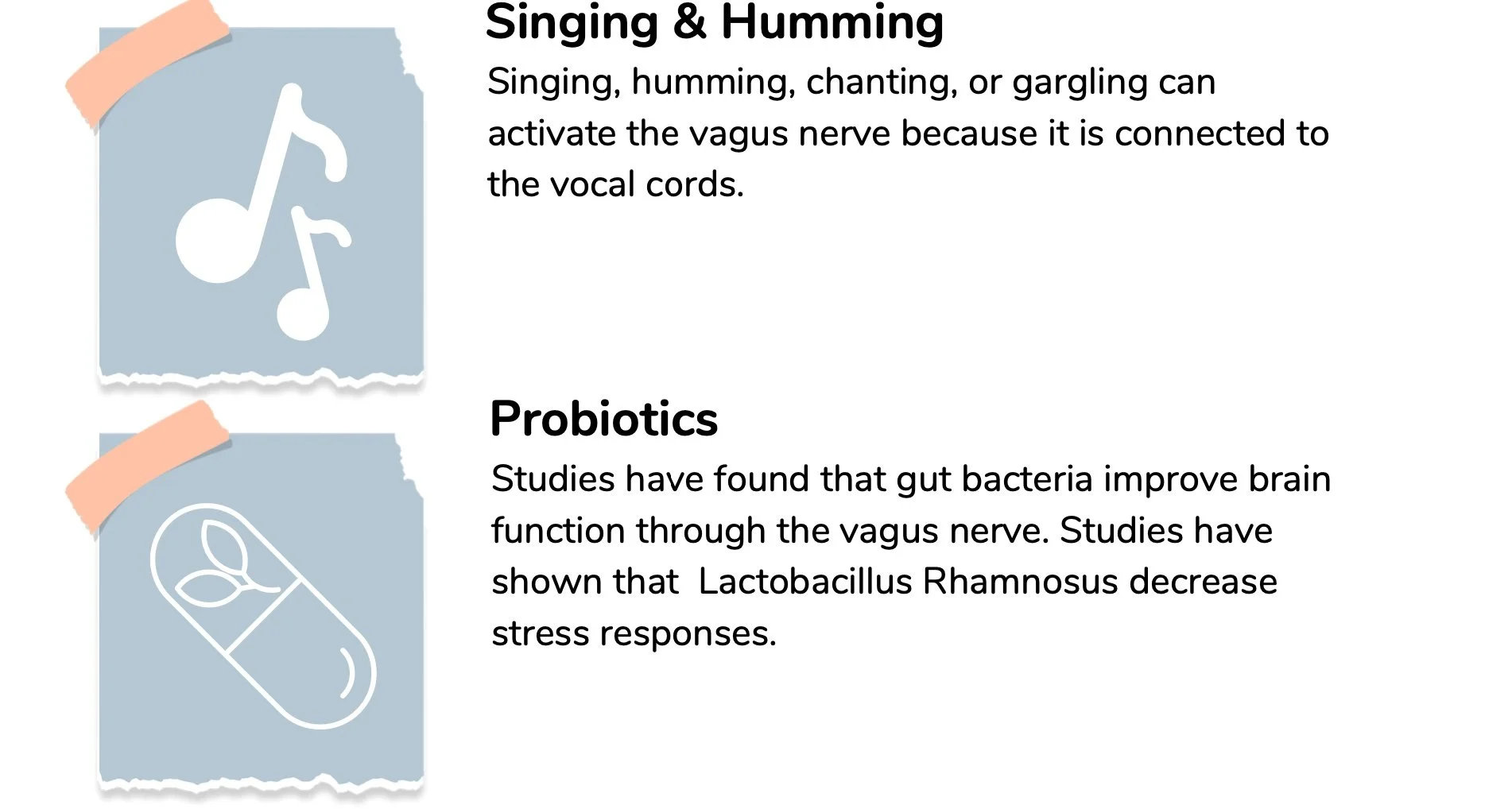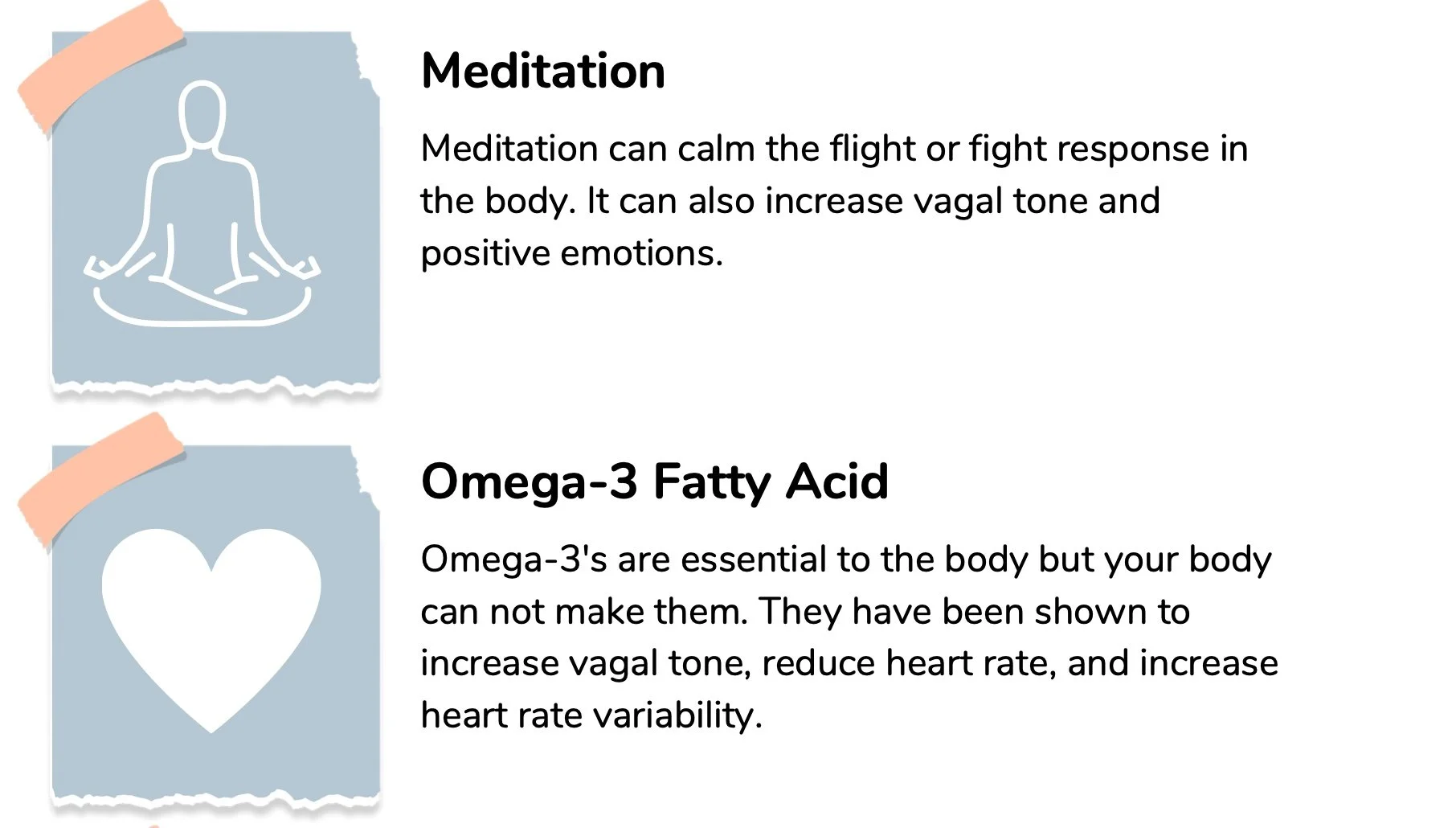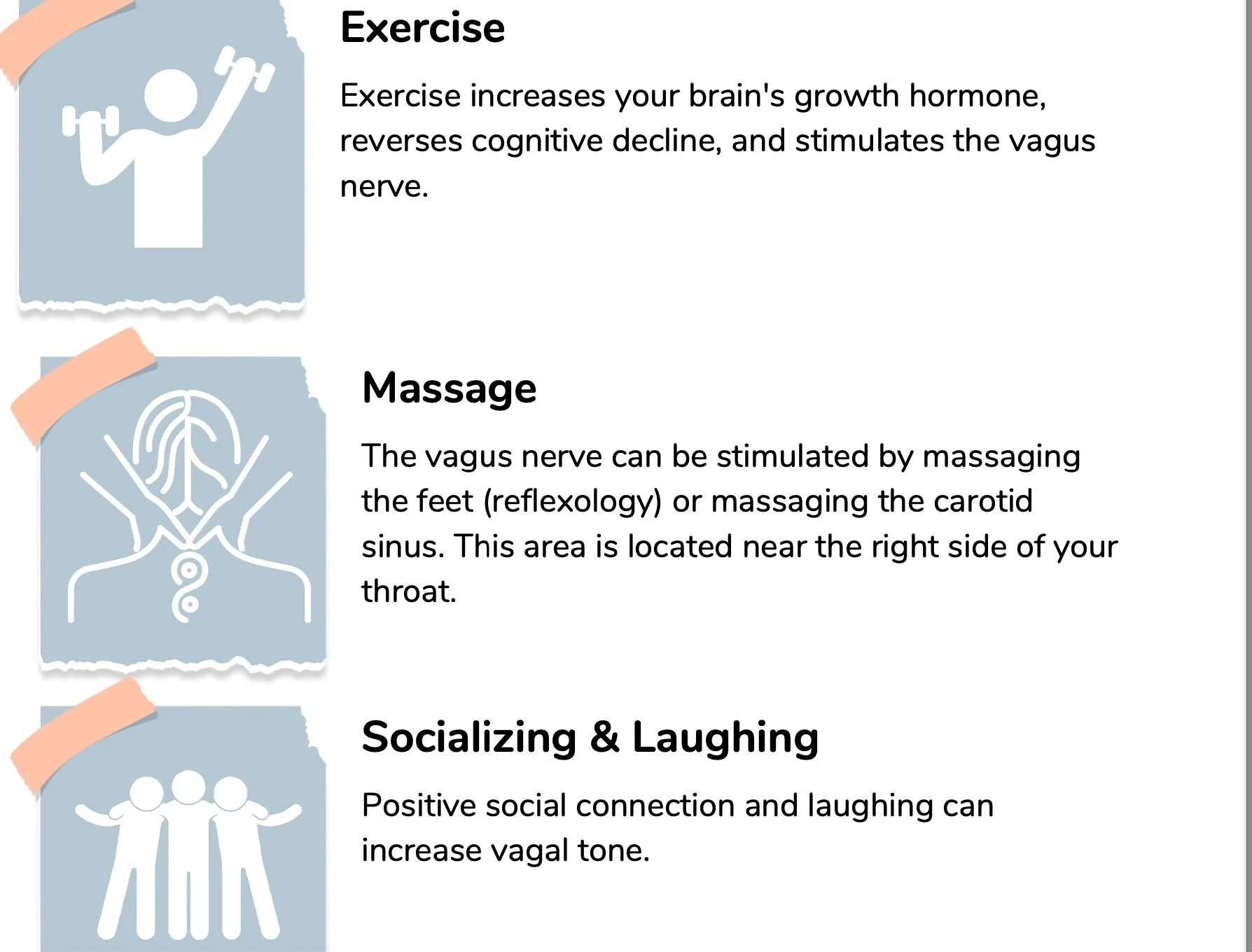The Unsung Hero of Mental Health: The Vagus Nerve
When we think about mental health, we often focus on the brain—but there’s another key player that deserves attention: the vagus nerve. As the longest cranial nerve in the body, the vagus nerve connects the brain to major organs like the heart, lungs, and digestive system. It plays a crucial role in regulating the parasympathetic nervous system, which helps the body rest, digest, and recover from stress.
Why is this important for mental health? Because the vagus nerve directly impacts you we respond to stress. When it’s functioning well, we’re more likely to feel calm, connected, and resilient. A well-toned vagus nerve supports emotional regulation, lowers inflammation, and even enhances our ability to connect with others—all essential elements of psychological well-being.
Research has linked vagal tone (the strength and flexibility of vagus nerve function) to reduced symptoms of anxiety, depression, and PTSD. People with higher vagal tone tend to bounce back more quickly from stressful experiences, while those with lower tone may feel stuck in states of fear or overwhelm.
The good news is that vagus nerve function can be improved. Below is a list of things that can improve vagal tone and impact mental health.




